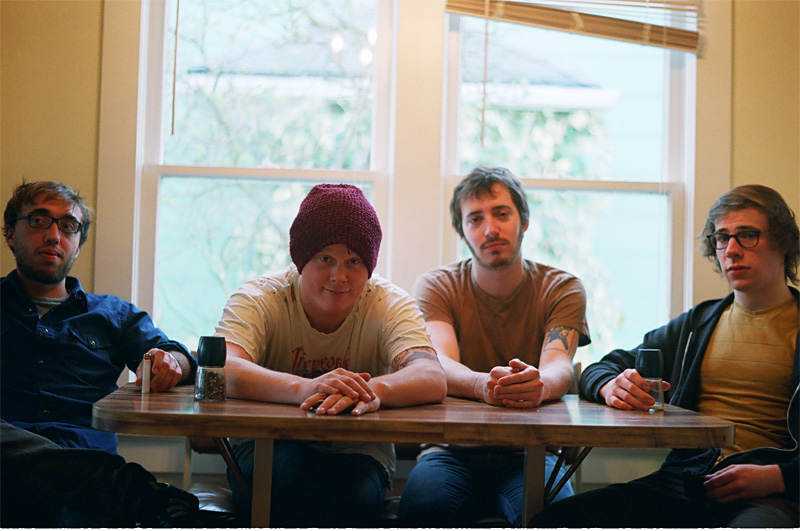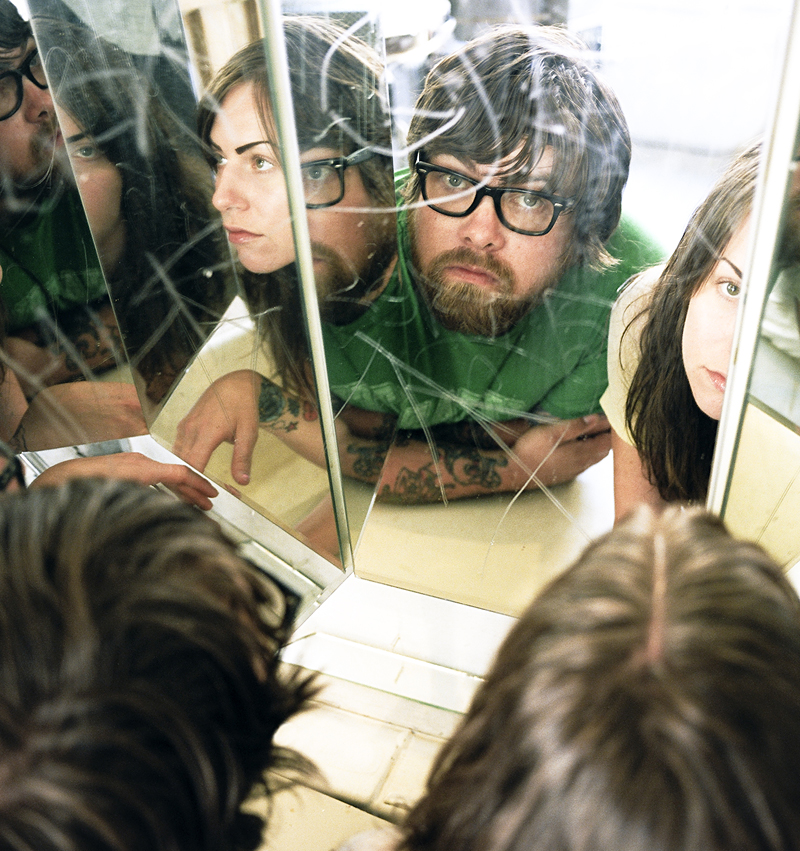In 2006, Kind of Like Spitting songwriter Ben Barnett abruptly announced that he was breaking up the band, then proceeded to drop off the face of the earth. After releasing eight full-length albums in six years, Barnett spent the next three years without writing a single song. He had built his entire career on candid, emotionally vulnerable songs about dysfunctional relationships, but when he and his former fiancée parted ways for good, Barnett succumbed to the darkness that making music had always kept at bay.
“I lost my shit,” he says with a rueful smile. “There were legitimate reasons to stay and to live in that situation, but I have this really great way of taking a situation that should be put to bed and let[ting it] go way too far.”
Ultimately, it took a job teaching kids at the Paul Green School of Rock to lift Barnett out of his downward spiral and back to songwriting. While Barnett was still in Portland, working at a coffee shop and trying to get his life back together, a friend who taught at the school asked Barnett to fill in for a few of his sessions. Barnett agreed to give it a try. “Before I even went through the threshold of the campus, I walked back out and quit my job,” Barnett recalls. Eventually, Barnett became the director of the new Paul Green School of Rock in Seattle.
Now, as he perches before stacks of cassette recording equipment at his south Seattle home, it’s clear that the 35-year-old has moved on to a new chapter in his life. Which is why Barnett chose to start a new band, Blunt Mechanic, rather than try to resurrect Kind of Like Spitting. Even though the bright, lo-fi tape recordings he’s made as Blunt Mechanic sound a lot like his former band—there’s no mistaking Barnett’s raw, reedy singing voice for anyone else’s—the songs onWorld Record, his first Blunt Mechanic album (and first Barsuk Records release since 2002’s Bridges Worth Burning) are, for the first time in Barnett’s career, as hopeful as they are emotionally affecting. “It’s not so much what you hear that’s revolutionary, it’s what was going on in my head that was.”






